The project consists of a metallic bench that can be placed outdoors, with a couple of USB outputs to charge your mobile on the go.
The bench is grounded (bonded with our internal connection box, which itself is connected to the electric ground conductor). So we are protected against any AC fault. Also the equipment would be connected only to GFCI outlets (as mandated by NEC on outdoor applications).
The USB 5V output is provided by a small switch mode power supply, the output is "floating" or isolated from the AC Ground.
So, would it be advisable to ground the V(-) output to the electrical ground?
As our female USB connector is metal and connected to the metallic structure, we are naturally bonding with ground since said structure is already grounded. If we don't insulate this, we already have a V- grounded, since most of the USB chargers have the SHIELD coupled with V-. If we want to ground V-, should we leave that to only the USB Female casing connection? Or would it be better to attach a cable from ground to the V- directly at source? In this way, we would have 2 layers of protection, but I'm not sure if we can go into trouble by having something that could be considered a "Ground loop".
Additional comments:
- Why do this? We fear these failure modes that can make the product dangerous.
Failure modes to USB output:
- Failure on the insulation of primary / secondary of transformer, connecting 120V to the output. Maybe this could go unnoticed if the AC voltage goes only to the (+), and it would never touch any grounded surface.
- Failure of the internal insulation of the USB charger. The 120V AC phase runs close to the enclosure of the USB male connector. If for some reason the insulation melts or we have moisture, we would have 120V directly on the case of the USB and V- of the output, since they are generally bonded in these devices. Having the (V-) or shield grounded would protect against this.
- Why wouldn't we want to do it?
- Maybe we can have ground loops? Since we have 2 ways to earth, from USB female enclosure to metallic case of product, and from there to ground. And also the V (-) that would be attached to ground.
- Some people advise against it
- Any ground interference or stray voltages that maybe can affect our outputs or the internal circuits of the power supply?
- Why we are using an USB outlet for this?. (Leviton T5632) The scope of the project can afford a personalized PCB board design at the moment. We have tested multiple USB chargers, but find that the wall USB designs are good:
- They have a degree of NEMA protection.
- They are designed to work in enclosed spaces and not so "ideal" situations.
- Leviton device has protection against both shorts and over-current. Many don't have this!
- Good charging rates, around 3A.
- The output is sightly higher (5.15V), so that's ideal to correct our voltage drop by the extension cable.
- Easy to get, good pricing, UL certification, not bad quality as the thousands of Chinese USB chargers.

